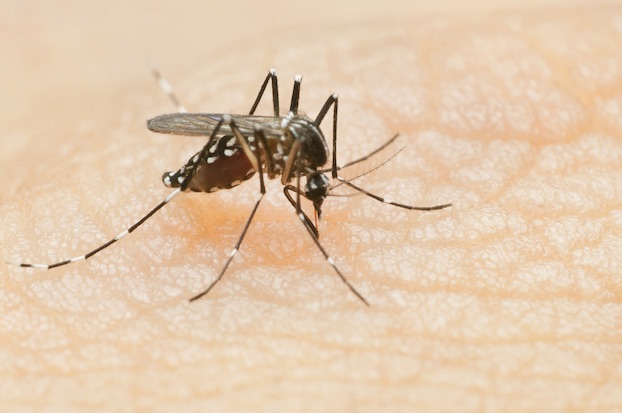They want your blood: Pesky mosquitoes are not only annoying, they can be a health hazard, too
Published 7:38 am Wednesday, June 21, 2023

- (Metro Creative Services)
More than 175 mosquito species are found in the U.S.. Several dozen are common in South Louisiana. One of the most annoying is, without doubt, the single mosquito that finds a way into the bedroom to find a tender place to pierce a split second before the sandman visits. Or, maybe it’s the outdoor event party crasher. Or, the greedy bloodsuckers that leave youngsters scratching.
Mosquitoes, of course, can be more than just annoying. They can spread disease to people, pets and livestock. A mosquito can sense carbon dioxide from more than 30 feet. As it moves closer, it can sense odor and heat. A bath before bed, DEET, picardin, citronella, lemon and eucalyptus have been known to alter a person’s odor profile. Researchers now know these bloodsuckers sample a little “taste” before they feed.
“Mosquitoes are more attracted to some people than others, individuals with a high metabolic rate, those who emit more carbon dioxide and those who are drinking alcohol, for instance,” said Christina DeHart, Mosquito Joe.
Trending
National Mosquito Control Awareness began Monday, June 18 but here in Louisiana, mosquitos are a problem almost year round, according to Steve and Mary McNeal, owners and operators of Mosquito Authority.
“We have been servicing SWLA for 12 years, starting in June 2011,” Steve McNeal said. “We started as customers and thought this would be a part-time business.”
It wasn’t long before the McNeals’ part time franchise grew to a full-time business, and it wasn’t without challenges. Operating a full-time rapidly growing business requires staffing, additional equipment, establishing operational protocols and ongoing education and training.
Warm temperatures extend the mosquito season, according to DeHart. She and her husband Steven, own Mosquito Joe. Temperatures here don’t stay below 50 degrees consistently. In other climates, the season is April through October.
“Our family has been interested in owning our own business and after an unexpected layoff we found an opportunity to own a franchise,” said DeHart. “We had looked into many different companies and everything fell in line with Mosquito Joe. We knew that Southwest Louisiana could benefit from this kind of company.”
As global temperatures increase, so does the mosquito population. Temps have been high here, but rainfall has been low to average. However, there have been some localized outbreaks, according to McNeal.
Trending
“Just about the time things are running along smoothly, we will have a major outbreak of mosquitoes hatch out, and the phone calls begin coming in as fast as we can answer them,” said Steve McNeal. “When a customer is having mosquito problems, they want immediate attention.”
Natural predators of adult mosquitoes include birds, bats, dragonflies and other insects. Larvae predators include fish, reptiles, frogs, turtles and copepods, (very small crustacean found in fresh and salt water). But these natural predators can’t rid Southwest Louisiana of its mosquito population that are not only a nuisance, but a threat.
“Did you know that the only way for your pet to contract heartworms is through the bite of an infected mosquito?” McNeal asked. “It has been documented in Louisiana that cattle have died as a result of asphyxiation due to the nostrils being clogged by the “Dark Rice Field” mosquito, Psorophora columbiae. Eastern Equine Encephalitis can be deadly to horses as well as humans, McNeal added.
DeHart said that mosquitos prevent livestock from feeding properly causing weight loss and lower milk production.
West Nile virus is the most common mosquito-borne illness in the United States and has been found in Louisiana. Fortunately, most people infected with West Nile virus do not feel sick. One in five develop fever according to the CDC. Only one out of 150 infected people develop a serious illness.
Mosquito Joe and Mosquito Authority can help Southwest residents prevent and control the mosquito population.





